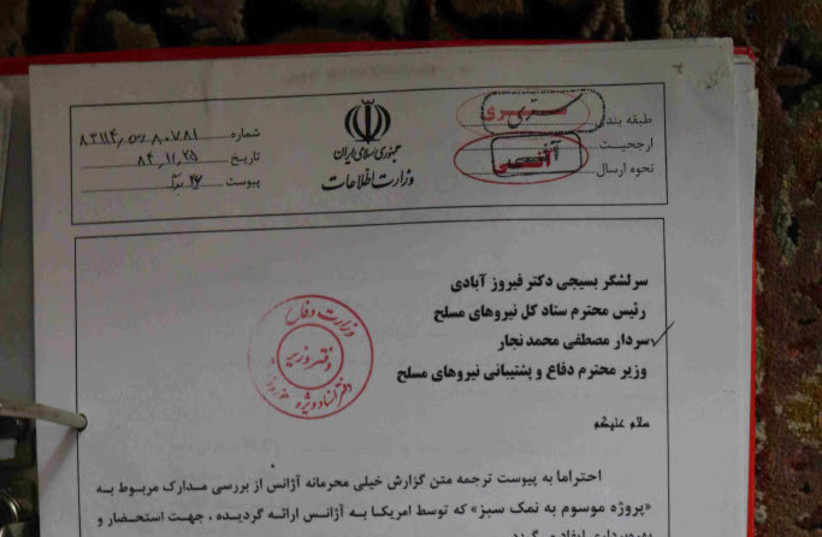IAEA Director-General Rafael Grossi will address the nuclear standoff with Iran before his agency’s Board of Governors meeting, his office announced on Thursday.
The announcement came as the Islamic Republic continued to threaten the agency and the West on Thursday with unspecified “strong” retaliation.
The US, France, Britain and Germany are pushing for the IAEA Board of Governors to condemn Iran for failing to resolve longstanding questions about illicit uranium traces at undeclared sites, according to a leaked draft resolution.
If the resolution is approved, it would mark only the second time the Islamic Republic has been condemned since before the 2015 JCPOA nuclear deal was signed.
The last time was in June 2020, and it led Tehran to allow concessions to nuclear inspectors within less than two months.

All eyes will be on whether the West or Iran falter or if both sides stick to their guns.
Iranian Foreign Minister Hossein Amir Abdollahian on Thursday praised his cooperation with the IAEA, saying that any political interference in the IAEA’s technical affairs is unhelpful.
“The process of technical cooperation between the AEOI with the IAEA and the repeated confirmation by the IAEA of the peaceful nature of Iran’s nuclear program cannot be reversed at once by a hasty political comment,” Abdollahian said.
“The process of technical cooperation between the AEOI with the IAEA and the repeated confirmation by the IAEA of the peaceful nature of Iran’s nuclear program cannot be reversed at once by a hasty political comment."
ranian Foreign Minister Hossein Amir Abdollahian
Some worry that the tough IAEA draft resolution could anger Iran, damage the prospects for rescuing the 2015 Iran nuclear deal and lead to retaliation.
Background
The Islamic Republic has previously reduced access of IAEA inspectors or unleashed military pressure on international shipping to pressure the West and IAEA into ignoring nuclear violations and cover-ups related to its military endeavors.
The ayatollahs have also threatened to leave the Nuclear Non-Proliferation Treaty entirely, which would be a more extreme form of retaliation.
Despite concerns that IAEA condemnation could harm the nuclear talks, those negotiations have been frozen since March, and have had little progress in general since Iranian President Ebrahim Raisi took power in summer 2021, a step back from the spring 2021 nuclear understandings reached with his predecessor.
Western powers had held off submitting a draft resolution at previous quarterly meetings of the IAEA’s 35-nation board on this issue to avoid derailing talks. But the West’s patience may have reached its limit.
The issue has now come to a head since Grossi told member states this week that Iran had not given credible answers on the particles found at three old but undeclared sites, although both sides agreed in March to revive discussions aimed at resolving such open issues by now.
The IAEA board “calls upon Iran to act on an urgent basis to fulfill its legal obligations and take up immediately the director-general’s offer of further engagement to clarify and resolve all outstanding safeguards issues,” said the draft text sent to IAEA member states and seen by Reuters on Wednesday.
The text, dated Tuesday, did not say which countries drafted it. Two diplomats said it was the US and the so-called E3, France, Britain and Germany.
The draft has yet to be formally submitted for the meeting that starts on Monday and runs through the end of the week. Board members could adopt it unopposed or put it to a vote, but the draft could also be watered down before it is submitted.
So far, there was no mention of referring Iran’s nuclear violations to the UN Security Council, potentially to invoke a return to full global sanctions against Tehran.
But such a threat could draw closer and could lead Iran to finally cut a deal with the West.
After the last IAEA condemnation, the Islamic Republic was hit by a cascade of explosions in nuclear and other facilities, attributed by many to the Mossad feeling that an IAEA vote could allow it to turn up the heat.
